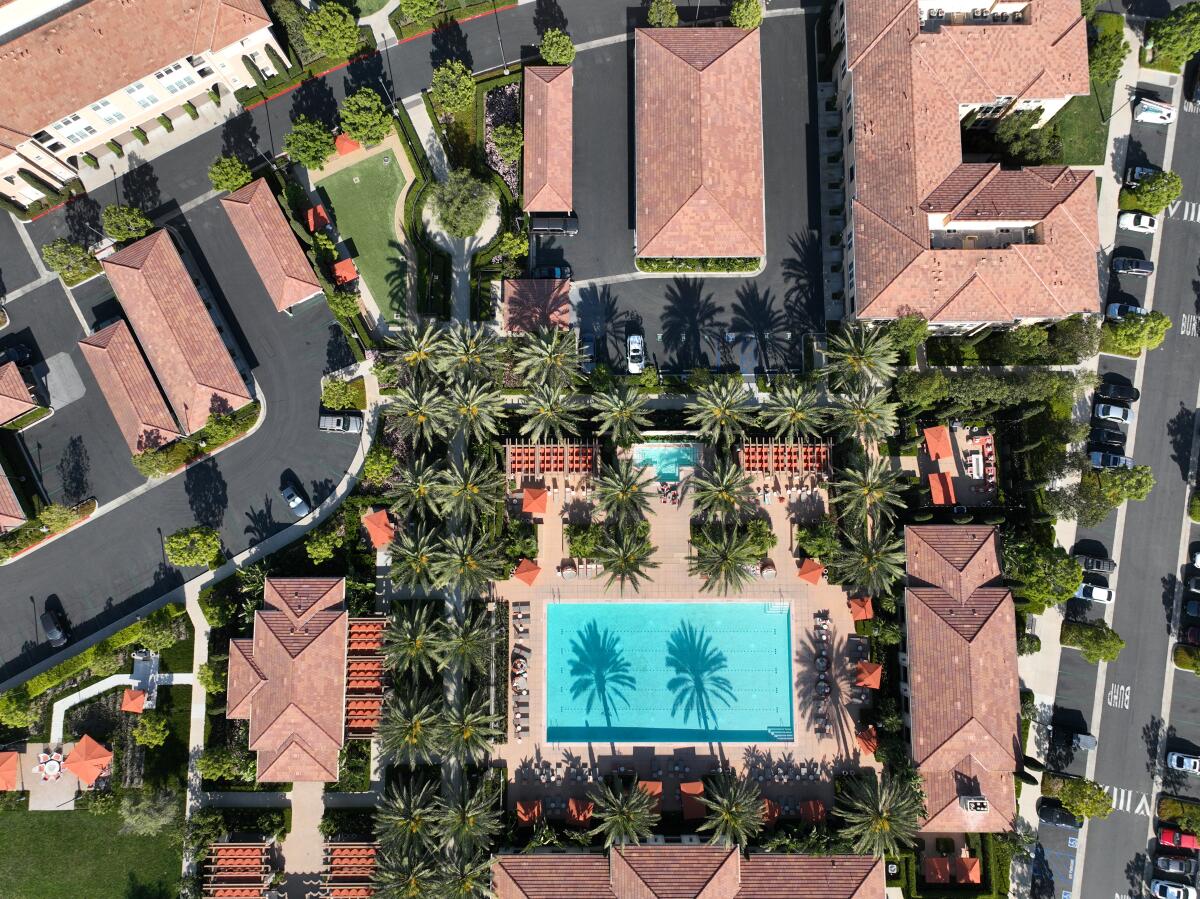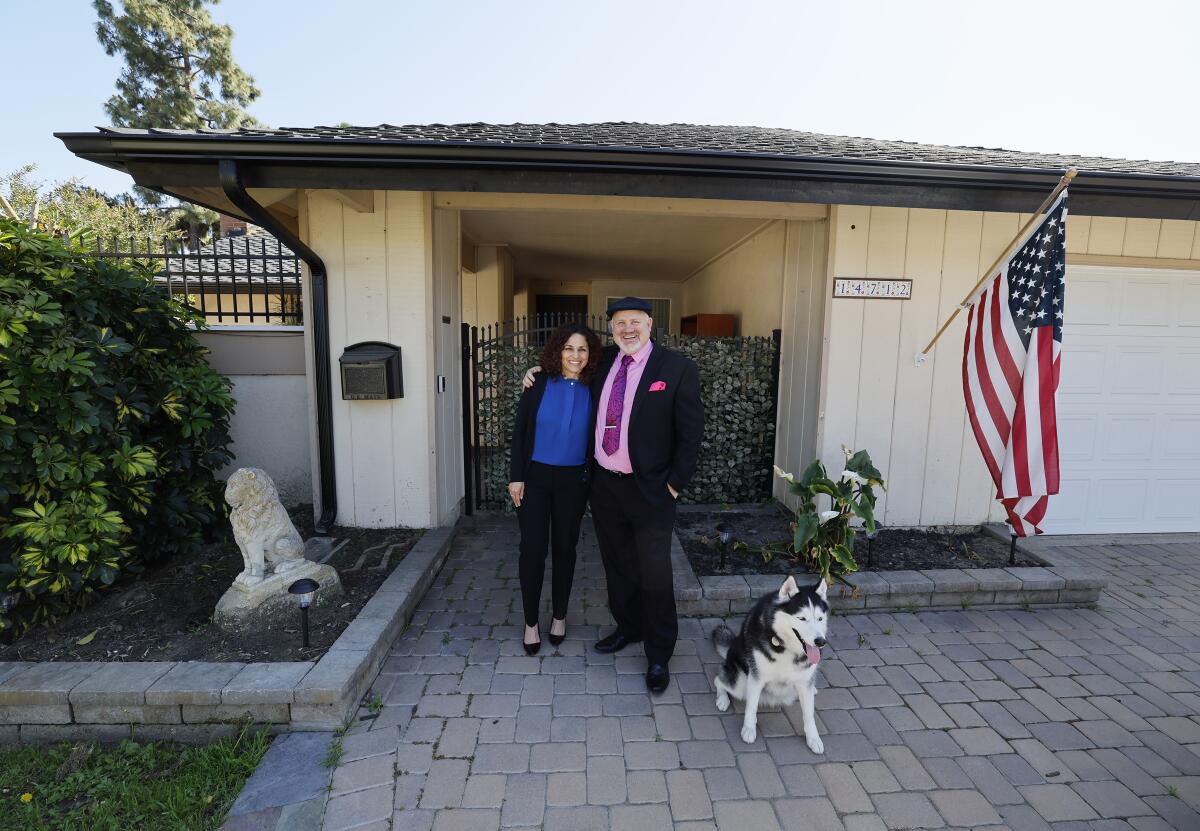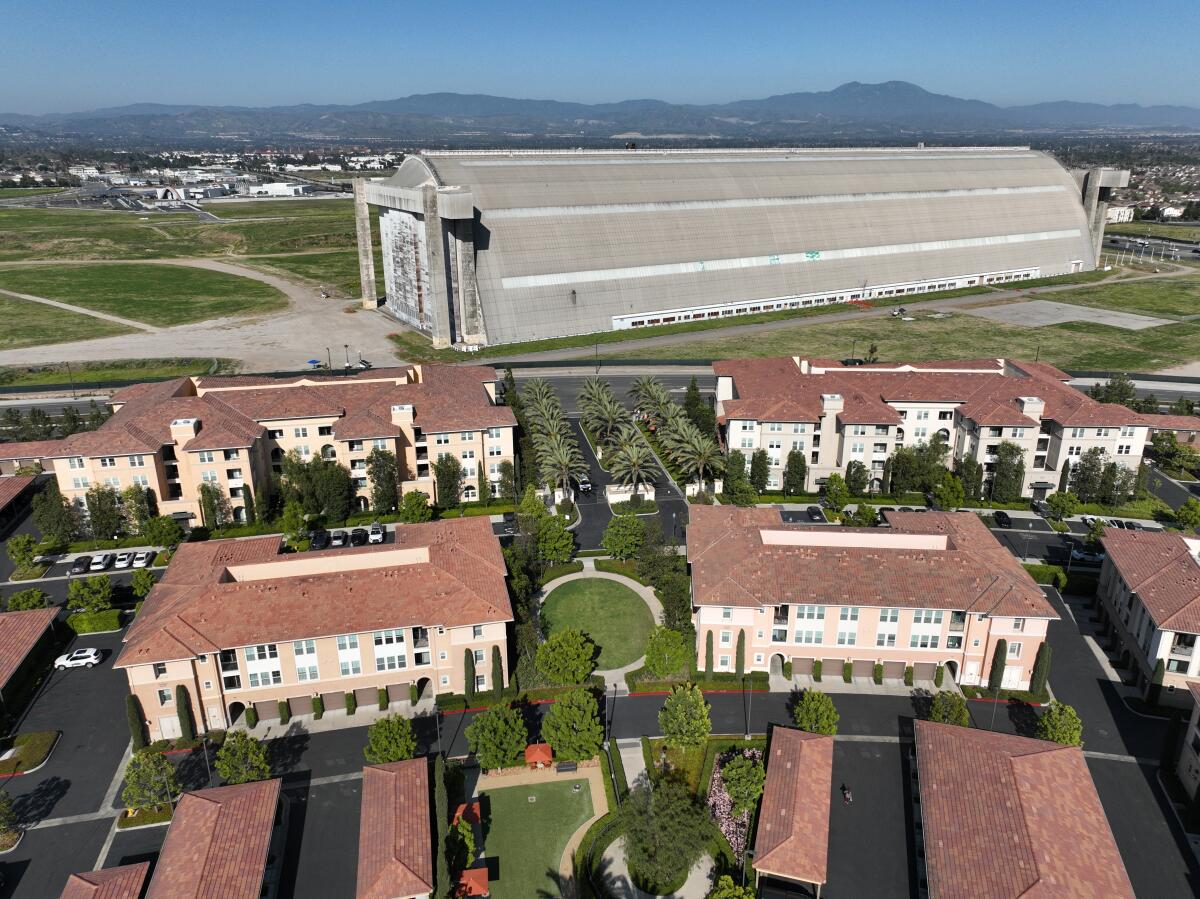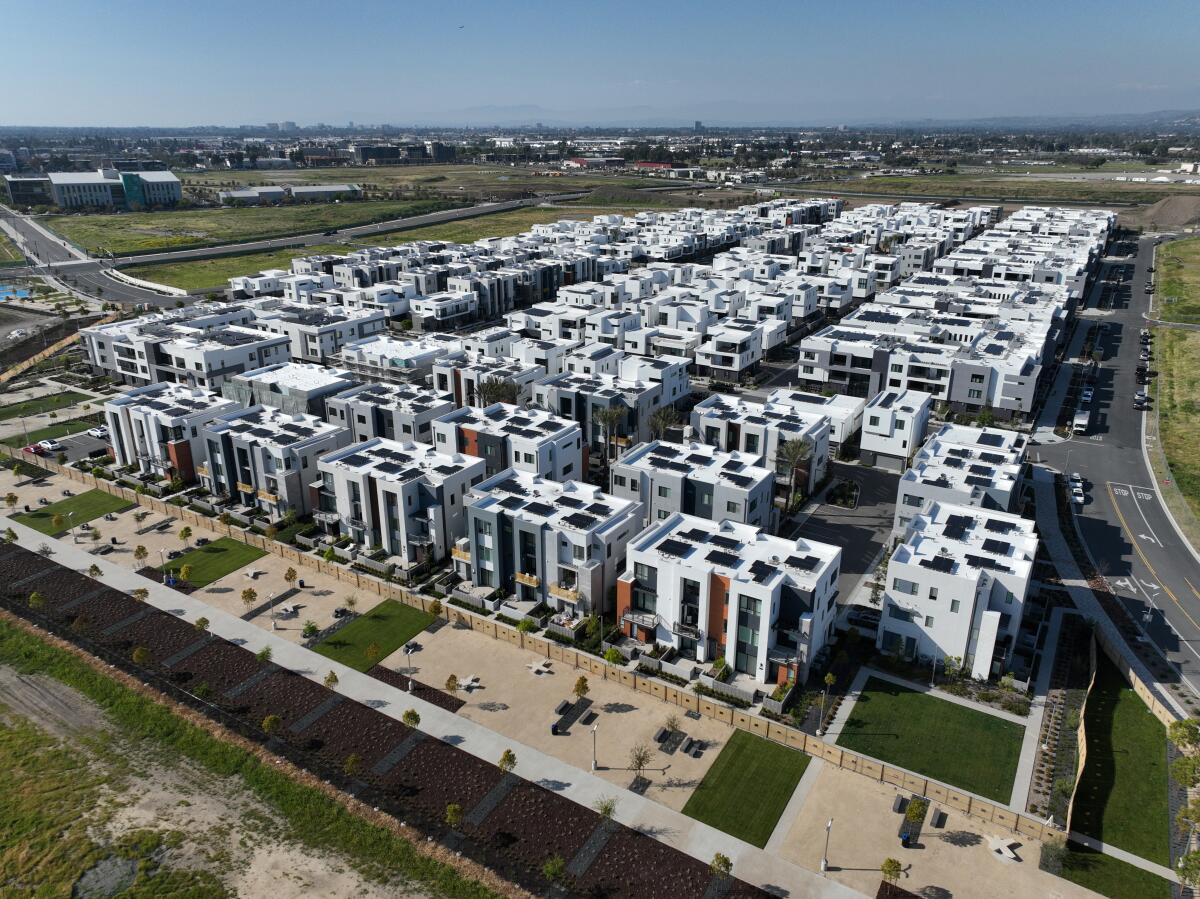California housing crisis so bad once-modest towns have become ‘million-dollar cities’

- Share via
When you think of towns with $1-million-plus homes, places such as Beverly Hills, San Marino, Newport Beach and Palos Verdes Estates might come to mind.
But as California housing values keep rising, some cities that until recently had reputations for working-class modesty are joining the list of communities with median home values more than $1 million.
The most recent additions include Placentia, Orange and Tustin in Orange County, Bonita in San Diego County and Cerritos and San Gabriel in Los Angeles County.
Among the new cities on the list, Bonita and Tustin had the highest growth rates, each with home values jumping nearly 12% in a year, according to an analysis by real estate listing site Zillow.

Tor Black, 55, has lived in Tustin for the last five years. The real estate agent and his wife, Iris, found their “forever home” in Tustin Meadows, the first planned urban neighborhood in Orange County, he said.
The value of the couple’s home has shot up from $800,000 at time of purchase in 2022 to $1.3 million today — an increase of more than 60%.
Black said Tustin has little undeveloped land, so most people who move there buy older homes and fix them up, increasing property values.
Many houses are passed down within families, he said, so it was difficult for him to find a home to purchase.
He knew he wanted to be in Tustin after living in Anaheim Hills. “It’s a family-type place,” he said. “A community that you don’t see in other parts of Orange County.”
As a child, Black dreamed of being a millionaire, but it was “such a faraway, lofty goal.” At least now he can take pride in owning a home worth more than $1 million, he said.
Amid a population slowdown and a housing crisis, the state saw sluggish job growth in 2023, according to data from the Bureau of Labor Statistics.
Given the constraints on supply and increasing demand for Southern California, he said the skyrocketing prices are understandable.
California has 210 cities where the median home value is at least $1 million, representing a sizable portion of the 550 so-called “million-dollar cities” in the U.S., according to Zillow. California has more million-dollar cities than the next five states combined.

California added 12 such cities to its list this year, surpassed last year only by New Jersey, which added 14 million-dollar cities.
In California, the new cities were: Bonita, Tustin, Brea, San Gabriel, Cerritos, Orange, San Luis Obispo, Placentia, Cambria, Thousand Oaks, Pala, Pleasant Hill, Arroyo Grande, Bonsall and Cypress.
Although California actually recorded 15 cities that vaulted into the seven-figure range, three cities that had previously been on the list had home values drop below $1 million: Tomales, Carnelian Bay and Vernalis.
Five cities that were already on the million-dollar cities list had bigger growth — and all were in Southern California — La Cañada Flintridge, Irvine, Laguna Niguel, Laguna Hills and Poway, where growth ranged from 12% to 17%.
Statewide, the median home value last year was $789,000, a 3.1% increase over a year prior. The median home value was up 33.5% over five years.
In Bonita, an unincorporated sliver of San Diego County and home to about 13,000 people, restrictions on construction of new homes and surging demand may have contributed to rising home values, which are up 65% over the last five years.
Wendy Wilson, 57, works at the Bonita Historical Society and lives in nearby North Park. She said residents appreciate the rural feel of the area, adding that “people still ride horses here. There are still stables.”
Bonita, home to many century-old historic homes, limits the construction of new housing to maintain its character, she said.
“Because there’s been a control over what the area looks like,” keeping its rural feel, as well as Bonita’s proximity to San Diego and Tijuana, “it is a really popular place to live,” Wilson said.
Most U.S. states saw an influx of Californians amid a Golden State exodus but in 2022 more people from New Jersey, Illinois and Nebraska moved to California than the other way.
In Tustin, Black sees a city situated between the Orange County hubs of Santa Ana and Irvine with its own charm.
But affordability is a problem in Tustin, as it is throughout California.
With a median household income of more than $100,000, the average home in Tustin is worth about 10 times what a household earns, according to census data. Bonita’s ratio is similar.
Nationally, homes are worth five to six times household earnings, up from a 4-1 ratio in 2019. In California, that rockets up to at least a 10-1 ratio, according to Harvard University’s Joint Center for Housing Studies.
Black, who serves on the city’s chamber of commerce, said Tustin is diverse “not just in ethnicity and religion” but also in age and educational attainment.

He said Tustin is more affordable than Irvine and safer than Santa Ana, highlighting the local police force’s tough-on-crime nickname: “bustin.”
Like so many other Southern California cities, though, Tustin suffers from brutal traffic, Black said.
“Public transportation would be a good thing, but then again people don’t really want to use it,” he said.
Residents have shown little appetite for buses.
“People love their cars,” Black said.
Traffic issues notwithstanding, the limited supply of housing and proximity to job centers have been a boon for home values in Tustin and neighboring cities.
“People always idolize SoCal,” Black said.
More to Read
Sign up for This Evening's Big Stories
Catch up on the day with the 7 biggest L.A. Times stories in your inbox every weekday evening.
You may occasionally receive promotional content from the Los Angeles Times.













